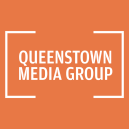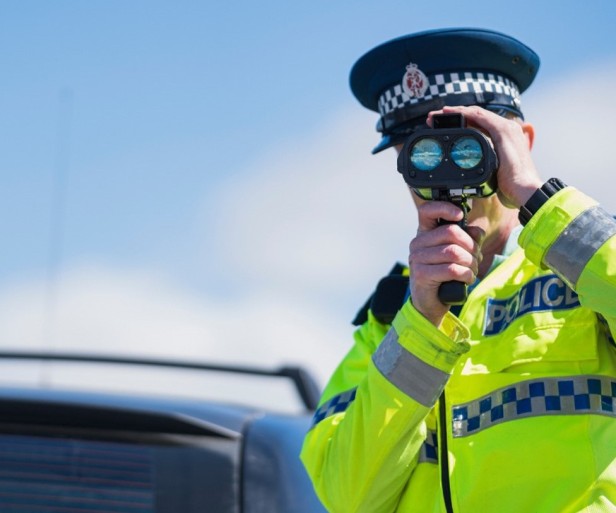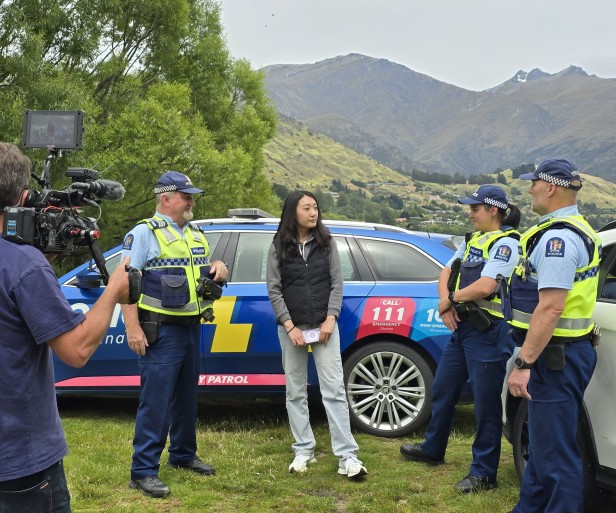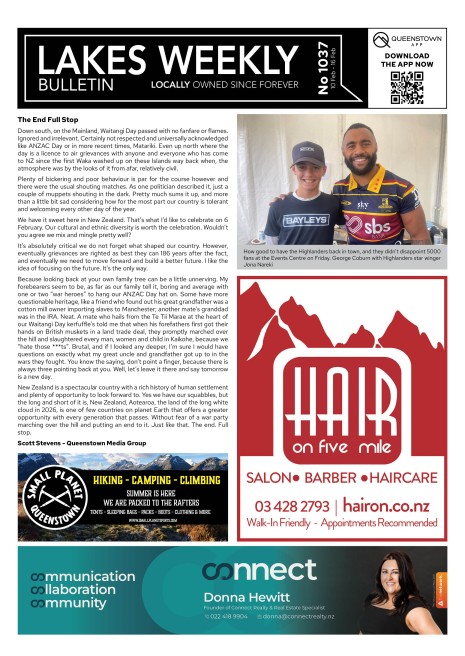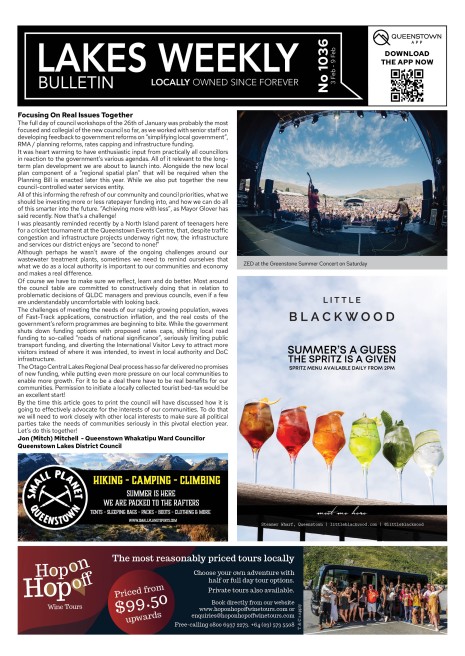Top 10 most hazardous items found in Queenstown bins
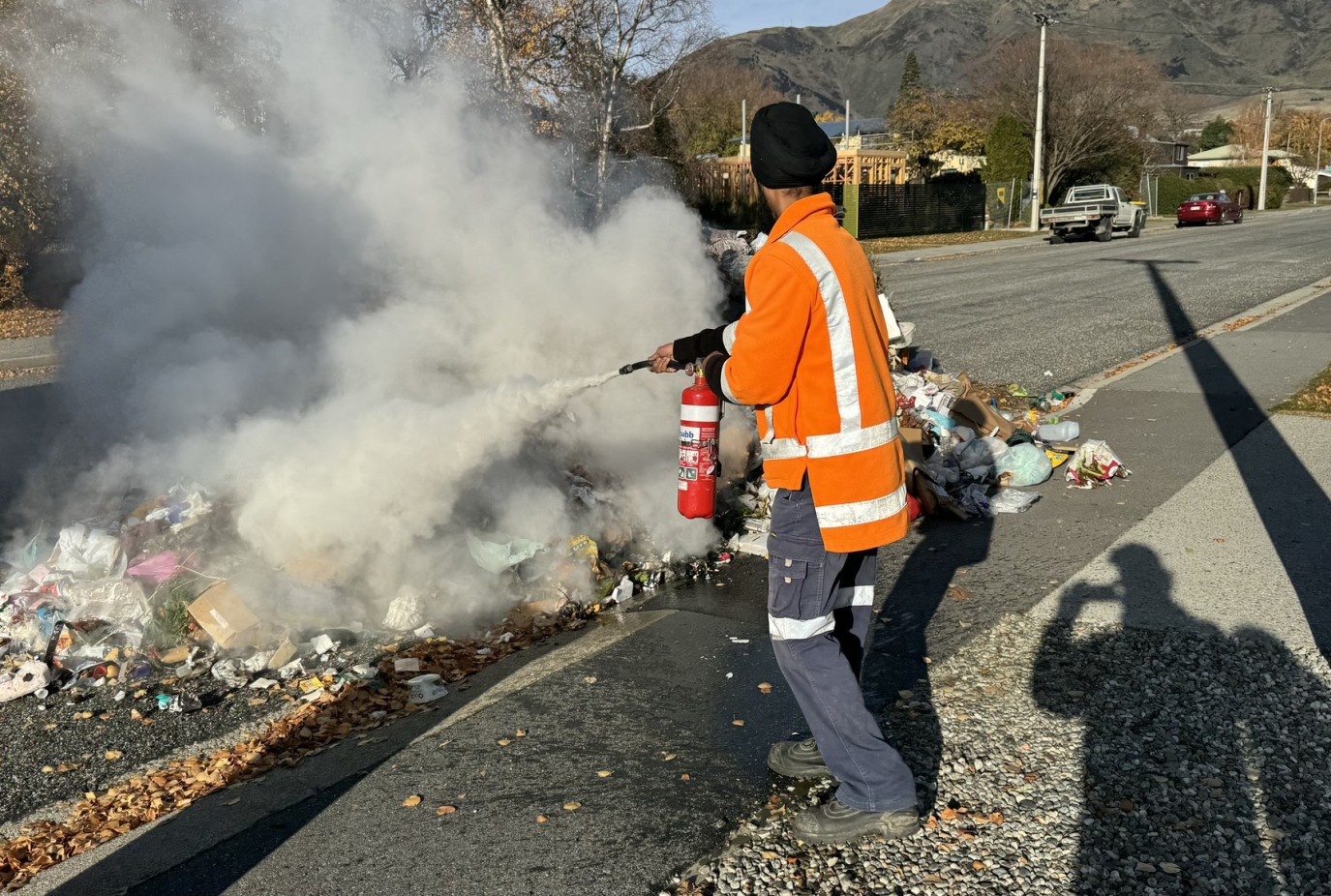
Christmas is done and the bins are full.
But, not everything used at home can be disposed of in Queenstown Lakes District Council's red, yellow and blue bins - and some items are downright dangerous.
QLDC is raising awareness about the importance of responsible waste disposal with the release of its list of the top 10 most hazardous items identified in local rubbish and recycling streams this year.
QLDC’s Solid Waste Officer, Cathy Patoine says that overall, residents in the district do the right thing when it comes to recycling and disposing of items responsibly.
“However, occasionally we see items that are incorrectly disposed of which raise a few eyebrows. This poses serious health and safety risks to staff, including collection vehicle drivers and staff at the transfer stations, landfill and on the sort-line at the Material Recovery Facility (MRF).”
“It is our hope that by offering guidance on how to dispose of these items properly, we can encourage the community to keep safety in mind when disposing of unwanted goods,” she said.
In Queenstown Lakes, every item that goes into the yellow recycling bin is hand-sorted as it goes through the MRF on a conveyor belt, so incorrectly disposing of items can pose a safety risk to the employees sorting at the facility.
Patoine advises folks to visit QLDC’s comprehensive A-Z Rubbish and Recycling Directory online to find out what belongs in kerbside bins and where other unwanted items can be dropped off for reuse, recycling, or safe disposal.
Top 10 most hazardous items found in QLDC’s waste facilities and rubbish and recycling bins in 2024
1. Batteries
Batteries have sparked dangerous fires at rubbish and recycling facilities in the district this year, including one at the Material Recovery Facility (MRF) and another at the Wānaka transfer station pit. Even more alarming, batteries are the leading suspected cause of ten additional fires in collection vehicles and waste facilities this year alone, putting lives, property, and critical infrastructure at serious risk.
Batteries—particularly lithium batteries, like those found in vapes—are highly flammable when damaged, mishandled, or incorrectly disposed of. Residents are urged to keep batteries and vapes out of rubbish and recycling bins. Instead, recycle them safely and for free at the Frankton or Wānaka transfer stations.
2. Ammunition
With plenty of avid hunters in the district, QLDC has seen shotgun shells and live rounds incorrectly disposed of at its facilities, posing a significant safety risk to staff, the public, and infrastructure. Residents are reminded that ammunition must never be placed in rubbish or recycling bins, with the only safe way to dispose of ammunition is to contact your local police station.
3. Medical Waste
In October, QLDC received a load of sharps and medical waste at the MRF, putting staff at serious risk. Residents are reminded not to dispose of needles, syringes, or medical waste in kerbside bins. Instead, contact your local pharmacy, medical centre, or healthcare provider, as they may offer safe disposal services or accept medical waste, including treatment drugs, to ensure it is disposed of safely.
4. Vapes
Vapes frequently include components like lithium-ion batteries which are highly flammable when damaged. When the batteries get pierced or squished in the collection vehicle or at a rubbish or recycling facility, they can ignite, causing a fire which is super dangerous for rubbish and recycling collectors and the public.
Help keep everyone safe by responsibly recycling vapes by taking them to Frankton or Wānaka transfer stations or to specialist used vape drop off points. Check the VapeCycle website for more information: https://www.vapecycle.co.nz/
5. Asbestos
Asbestos, once widely used in construction, poses serious health risks when its fibres are inhaled. Always hire a licensed professional (see WorkSafe's website) if disposing of large amounts. Lesser amounts (up to 20-litre bags) can be disposed of at transfer stations by arrangement only, but asbestos must be double-wrapped in heavy-duty polythene, sealed, and clearly marked.
6. Paint
Paints and thinners are harmful for the environment when disposed of incorrectly, particularly when they end up in stormwater systems, introducing harmful substances into waterways. Take unwanted paint or paint containers to Resene Colourshops in Wānaka and Queenstown for recycling and responsible disposal.
7. Fertiliser/agrichemicals
In February, a half full bottle of cloudy ammonia placed in a mixed recycling bin caused a serious safety risk to staff when pierced on the sort line at the MRF, forming a mist that was inhaled by a staff member. Fertilisers are classified as hazardous waste and can’t go in rubbish or recycling bins but are accepted at the Frankton and Wānaka transfer stations by prior arrangement to ensure an approved handler is available to safely receive the product.
8. Butane canisters
Whether you're upgrading your camping gear or cleaning out your shed, don’t toss old butane canisters in rubbish and recycling bins. When punctured, these canisters can explode. Take them to the Frankton or Wānaka transfer stations for degassing and safe recycling.
9. Engine oil
Household volumes of used engine oil from cars, mowers, chainsaws can be recycled at transfer stations in the district. Make sure the oil is in a clearly labelled, water-tight and sealed container – use the container that the new oil comes in, for example. Contaminated oil (e.g., with petrol or antifreeze) is not accepted for recycling and needs to be taken through the transfer stations as hazardous waste.
10. Gas Bottles
Like butane canisters, never dispose of old or unused gas bottles in rubbish and recycling bins, as leaking gas or pressure buildup can cause a dangerous explosion. Refill or swap your gas bottles at some petrol stations (e.g Caltex, BP) or Mitre 10 Mega in Wānaka and Queenstown, or take them to a transfer station for degassing and recycling.

